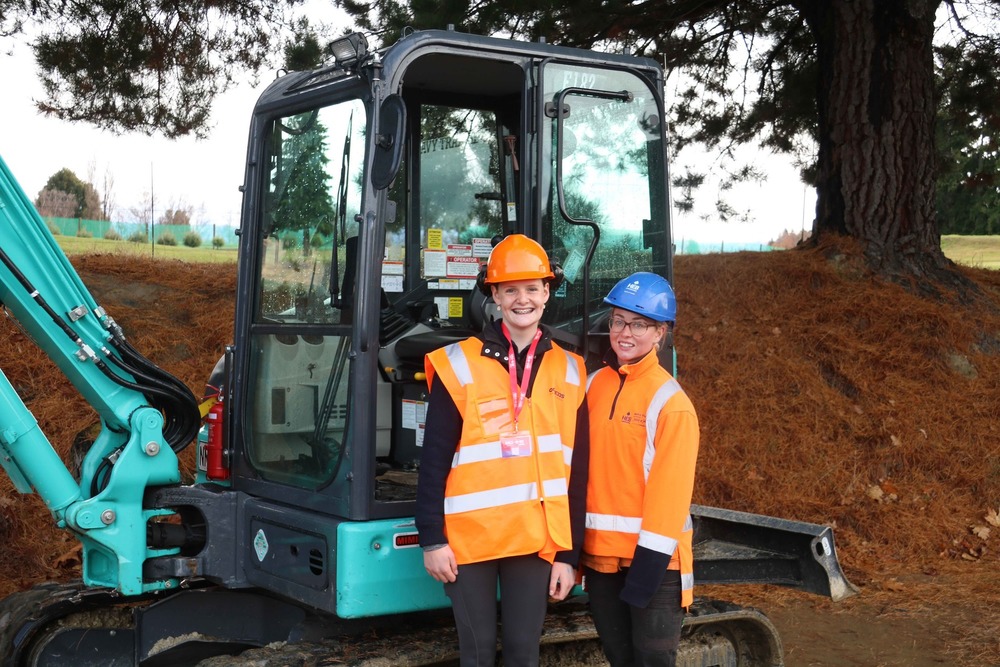Infrastructure staff shortage sparks campaign for young women
Maddy Harker
13 June 2022, 6:04 PM
 MAC students Bryne Bloxhan, Lucy Laker and Kate Watson try their hand using a survey pole GPS unit along with HEB Construction graduate engineer Tess Allen.
MAC students Bryne Bloxhan, Lucy Laker and Kate Watson try their hand using a survey pole GPS unit along with HEB Construction graduate engineer Tess Allen.A career in civil construction may now be on the cards for some female Mount Aspiring College (MAC) students after experiencing a day on the job with HEB Construction in Wānaka.
Twenty one students from MAC and Dunstan High School took to the tools at HEB Construction’s Wānaka water supply upgrade project last Thursday (June 9).
The local event was the second of 30 set to take place around the country as part of a ‘Girls with High Viz’ (GWHV) campaign - managed by Connexis - designed to introduce young women to the opportunities available in the infrastructure industry.

Alexis Harvey-Wills from MAC (left) getting a few tips from HEB construction site traffic management specialist Tara Murphy about driving a 5.5T digger.
“Before experiencing the HEB Construction project and the work it involves they probably did not understand what an infrastructure career had to offer, let alone considered the industry a viable option for when they leave school,” Connexis director Kaarin Gaukrodger said.
“The fact that this event has opened up a new career option for them is fantastic and exactly what we’re aiming to achieve with the GWHV events.”
The students got behind the controls of a digger and operated a plate compactor and GPS radar.
HEB Construction graduate engineer Tess Allen and site traffic management specialist Tara Murphy shared with the students an insight into their work experiences and career paths.
The infrastructure industry is facing a severe shortage in skilled workers and women are part of the answer, Karen said.
“Less than 14 percent of New Zealand’s civil construction workforce are women, and the sector’s business owners say finding skilled workers remains its biggest challenge.”
“Those types of discrepancies across the country’s infrastructure sector demonstrate a clear need to promote the full range of infrastructure jobs in a way that makes them appealing to women.”
The GWHV campaign, which involves 15 companies and 71 schools, will introduce 620 female students to what a career in the infrastructure’s civil, energy, telecommunications and water industries can offer.
PHOTOS: Supplied



